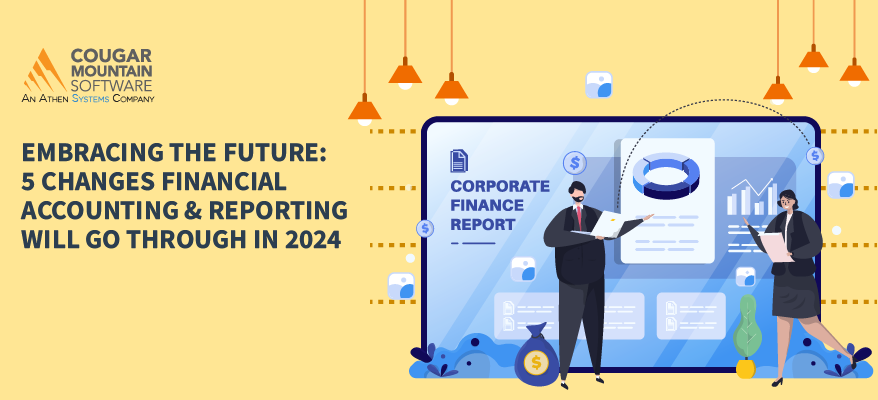Embracing the Future: 5 Changes Financial Accounting & Reporting Will Go Through in 2024

Embracing the Future: 5 Changes Financial Accounting & Reporting Will Go Through in 2024
As we gear up to bid adieu to 2023, the financial landscape is poised for some significant transformations in the realm of accounting and reporting. A myriad of factors, from technological advancements to regulatory shifts, are set to shape the way financial information is recorded, analyzed, and reported in 2024. Let’s dive into the five key changes that are bound to redefine the financial accounting and reporting landscape in the coming year.
1. The Rise of Blockchain Technology: A Game-Changer in Accounting
Blockchain technology, often associated with cryptocurrencies, is making its mark on financial accounting. According to a recent study published in the Journal of Accounting Research, blockchain is set to revolutionize the way transactions are recorded and verified. The decentralized and transparent nature of blockchain not only enhances the accuracy and reliability of financial data but also significantly reduces the risk of fraud.
In 2024, we can expect an increased adoption of blockchain in financial systems, leading to more efficient and secure accounting processes. This shift will not only streamline transactions but also provide stakeholders with real-time access to financial information, fostering a new era of transparency.
2. Integrated Reporting: A Holistic Approach to Financial Disclosures
The demand for more comprehensive and transparent reporting is driving the move towards integrated reporting. This approach, as highlighted in a recent report by the International Integrated Reporting Council (IIRC), encourages organizations to go beyond financial metrics and incorporate environmental, social, and governance (ESG) factors into their reporting framework.
In 2024, we can anticipate a shift towards integrated reporting frameworks that provide a more holistic view of an organization’s performance. Companies will increasingly recognize the importance of not only financial capital but also natural, human, and social capital in delivering a more complete picture to stakeholders.
3. Artificial Intelligence in Auditing: Enhancing Accuracy and Efficiency
Advancements in artificial intelligence (AI) are reshaping the audit landscape. A research paper in the Journal of Accounting, Auditing & Finance indicates that AI technologies, such as machine learning algorithms, are becoming integral in the auditing process. These technologies can analyze vast amounts of financial data with unparalleled speed and accuracy, identifying patterns and anomalies that may go unnoticed by human auditors.
In 2024, we can expect a surge in the use of AI in auditing processes, reducing the risk of errors and enhancing the efficiency of financial reporting. While human auditors will still play a crucial role, AI will complement their efforts, allowing for a more thorough and timely examination of financial records.
4. Sustainability Reporting: From Optional to Essential
Sustainability reporting is no longer a choice; it’s becoming a necessity. Research from the Global Reporting Initiative (GRI) emphasizes the increasing importance of sustainability reporting in meeting the expectations of stakeholders, investors, and regulatory bodies. In 2024, we’ll witness a growing emphasis on environmental and social impact disclosures as part of mainstream financial reporting.
Organizations will need to integrate sustainability metrics into their financial reports, providing a comprehensive view of their commitment to environmental responsibility and social welfare. This shift reflects the broader recognition that sustainable practices are not only good for the planet but also vital for long-term business success.
5. Cybersecurity Concerns: Safeguarding Financial Data in the Digital Age
With the increasing reliance on digital platforms, cybersecurity is emerging as a critical aspect of financial accounting and reporting. A study by the Association of International Certified Professional Accountants highlights the rising threat of cyberattacks on financial data and underscores the need for robust cybersecurity measures.
In 2024, organizations will prioritize cybersecurity in their financial reporting processes, implementing advanced technologies to safeguard sensitive information. This heightened focus on cybersecurity will not only protect financial data but also enhance the overall integrity and trustworthiness of financial reporting systems.
